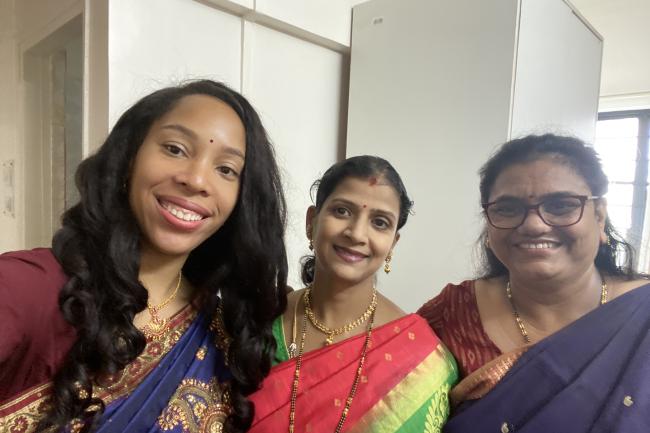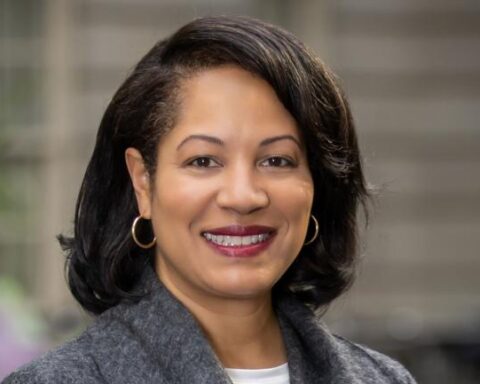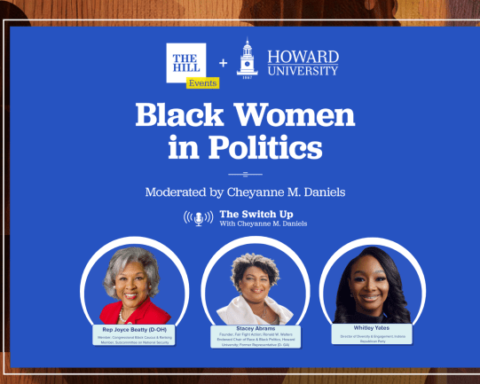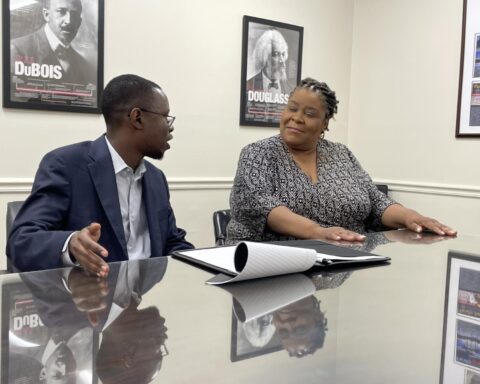By Brittany Bailer
Last year, Lyndsie Whitehead, a student at the Howard University School of Education, was awarded the Fulbright-Nehru Research Award and traveled to India to continue her research on the experiences of international students in higher education. She is pursuing a doctorate in Higher Education, Leadership and Policy.
Whitehead’s doctoral research explores the experiences and perspectives of international students in historically Black colleges and universities in the U.S. and around the world. Her year in India is focused on the push-pull factors involved in the decision of African students to pursue post-secondary education in India, including financial resource, support services and interpersonal relationships with faculty and peers.
“One of the things that I find particularly insightful about international student mobility is that India is intentionally trying to recruit international students through an initiative called the Study in India Initiative where the objective is to recruit over 200,000 international students,” said Whitehead.
Even though India is a country with a population of over 1 billion and is in no shortage of young, educated minds, the internationalization of education is a central element of their efforts to promote soft diplomacy. The relationship between India and African countries is strengthened when students bring knowledge of the exemplary educational and economic opportunities they were exposed to in India.
The historical connection between these two regions, both previously colonized by European nations, is also a significant factor in this relationship. “As I’ve been unpacking Afro-Asian connections, I engaged with members of the Siddi community in Karnataka, who have direct ties to their African ancestry, said Whitehead. “There is an aspect of the Afro-Indian connection that often is overlooked. There are so many different synergies between the descendants of the African diaspora as it relates to the pursuit for social justice and equity, it’s important to recognize that there is this historical piece, in addition to the things that are happening contemporarily.”
Although the Siddi people consider themselves Indian, they trace their roots back to Africa. This community of an estimated 20,000 people has been living in near obscurity in India for centuries. Members of this community have been marginalized and discriminated against because of their African roots. Their ancestors were brought to India by the Arabs as enslaved people, as early as the 7th century. When slavery ended in the 19th century, they fled to the jungles and now live mostly in the Indian states of Karnataka, Maharashtra and Gujarat. The research on these victims of the slave trade is shallow compared to the research that has been done on the transatlantic slave trade.
Whitehead’s exposure to the Siddi during her travel to Karnataka is an important indicator of the power of an international education. Nevertheless, pursuing higher education can be both a rewarding experience, as well as one that is riddled with potential challenges. International students face a plethora of challenges in studying abroad. In some cases, discrimination is a major deterrent and in other, the process of applying and re-applying for visas present barriers. The school where Whitehead is a resident, was created specifically to address the concerns of and provide support for international students, making it an ideal place to conduct her research.
“As a result of the Fulbright experience, individuals from diverse backgrounds are able to find shared commonalities, to utilize research to drive impact and change, as well as bring new insights.”





